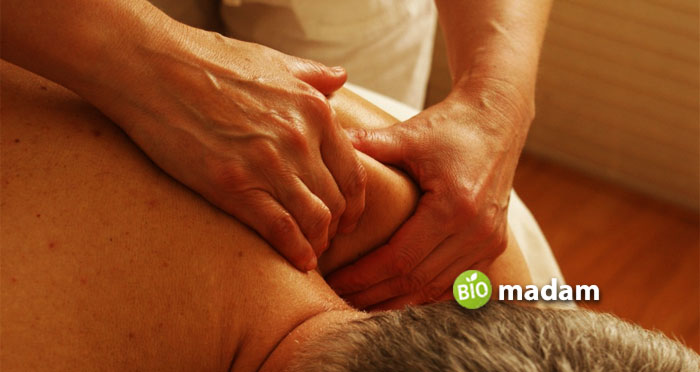If you are experiencing pain in your shoulder, it is important to seek medical attention. Left untreated, shoulder problems can lead to long-term damage and even disability. In this article, we will discuss the most common shoulder problems and their corresponding treatments. We hope that this information will help you get on the road to recovery!
Strains
The most common type of shoulder injury is a strain. This occurs when the muscles or tendons in the shoulder are stretched or torn. Symptoms of a strain include pain, swelling, and muscle weakness. Treatment typically involves rest, ice, compression, and elevation (RICE). In severe cases, surgery may be necessary to repair the damaged tissue. Reputable Dallas shoulder surgeons note that most patients can expect a full recovery with proper treatment. Strains usually happen due to overuse, so it is important to take breaks if you are engaging in activities that put stress on the shoulder.
Dislocations
A dislocation occurs when the bones in the shoulder joint are forced out of alignment. This can be a very painful injury, and it may require surgery to correct it. Symptoms of dislocation include severe pain, swelling, and deformity of the shoulder joint. If you suspect that you have dislocated your shoulder, it is important to seek medical attention immediately. Dislocations usually happen due to trauma, such as a fall or car accident. However, they can also occur gradually due to degenerative changes in the joint.

Dislocations are extremely painful and can cause numbness and tingling in the affected arm. This is because the nerves and blood vessels can get pinched when the bones are out of alignment. Treatment for a dislocation typically involves reduction, which is a medical procedure to realign the bones. Surgery may also be necessary to repair any damage to the ligaments or tendons.
Separations
A separation occurs when the ligaments that hold the shoulder joint in place are stretched or torn. This injury is also known as an AC joint separation. Signs and symptoms include pain, swelling, and bruising at the point where the shoulder meets the collarbone. Treatment typically involves RICE and over-the-counter pain medication. In severe cases, surgery may be necessary to repair the damaged ligaments. Separations usually happen due to trauma, such as a fall or car accident. They can also occur gradually due to degenerative changes in the joint.
Tendinitis
Shoulder tendinitis, also known as rotator cuff tendinitis, is a condition that results when the rotator cuff muscles and tendons become inflamed. A rotator cuff is a group of four muscles and tendons that surround the shoulder joint. These muscles and tendons attach the shoulder blade to the upper arm bone. The rotator cuff muscles and tendons help lift the arm and rotate it inwards and outwards. Rotator cuff tendinitis is a common condition that can occur in any age group. It often occurs after repetitive overhead motions such as pitching in baseball or serving in tennis. Rotator cuff tendinitis can also occur from a fall onto an outstretched arm or from a direct blow to the shoulder.
The symptoms of rotator cuff tendinitis include pain, stiffness, and weakness in the shoulder. The pain may be worse at night or when you first wake up in the morning. You may have difficulty raising your arm above your head. You may also feel a popping or snapping sensation in the shoulder joint when you move it. Rotator cuff tendinitis is treated with rest, ice, compression, and elevation (RICE). Physical therapy may also be recommended to help improve strength and range of motion. Surgery may be needed if the condition does not respond to conservative treatment.
Bursitis
Shoulder bursitis is a condition that results when the bursae become inflamed. The bursae are small, fluid-filled sacs that act as cushions between the bones and muscles in the shoulder joint. They help reduce friction and allow the muscles and tendons to move smoothly over the bones. Symptoms of shoulder bursitis may include pain, tenderness, and stiffness in the shoulder joint. The pain may worsen when you move your arm or lie on your side. You may also have a fever and feel tired. Treatment for shoulder bursitis often includes rest, ice, and over-the-counter anti-inflammatory medications. If these treatments do not improve symptoms, you may need a corticosteroid injection or surgery to remove the inflamed bursa.
Frozen Shoulder
Frozen shoulder is a condition that causes pain and stiffness in the shoulder joint. The exact cause of frozen shoulder is unknown, but it is more common in people with diabetes or those who have had a previous injury to the shoulder. Symptoms of frozen shoulder include pain and stiffness in the shoulder that worsen over time. The condition is usually treated with physical therapy, steroid injections, or surgery.
Fractures

Fractures are another common shoulder problem. A fracture is a break in the bone and can occur from a fall, car accident, or other trauma. Symptoms of a fracture include pain, swelling, bruising, and deformity. If you think you may have fractured your shoulder, it is important to seek medical attention right away as untreated fractures can lead to further problems down the road. Fractures usually happen due to a sudden force or impact that is too much for the bone to handle. There are different types of fractures, but the most common type of shoulder fracture is a fractured clavicle or collarbone. This type of fracture usually occurs from a fall onto your outstretched arm or a direct blow to the shoulder. Treatment for a fractured collarbone often involves wearing a sling to immobilize the arm and allow the bone to heal. Surgery may also be necessary in some cases.
There are many different types of shoulder problems that can occur. The most common shoulder problems include strains, dislocations, separations, tendinitis, bursitis, frozen shoulder, sprains and fractures. Treatment for these conditions often includes rest, ice, and over-the-counter anti-inflammatory medications. In some cases, surgery may be necessary. If you think you may have a shoulder problem, it is important to see your doctor so that the proper diagnosis and treatment can be made. We hope that this article was helpful!

Hi, they call me Jenna, and I am also known for achieving a gold medal during my Ph.D. in science life. I always had a dream to educate people through my utmost writing hobby. So, I chose this blogging path, and Biomadam gave me this opportunity to present for them. I now stand to entertain you. Continue reading my articles & discuss if you’ve any confusion through the comment section below.

